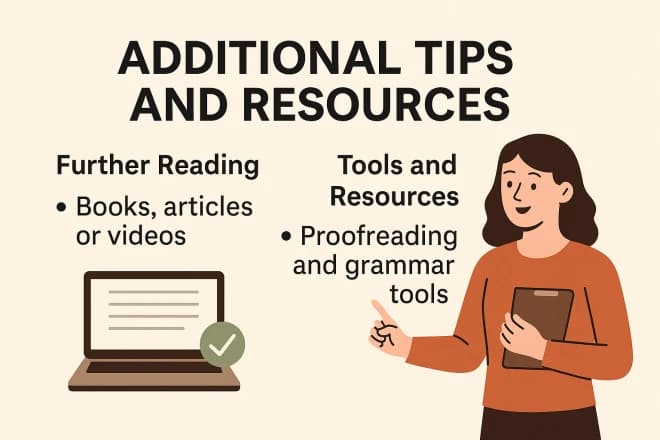Unlock Insights: Find the Answers You Seek on Our Blog
Argumentative Essay Examples: A Comprehensive Guide for Successful Writing
By Evelyn Sterling
An argumentative essay demands the writer to thoroughly research a topic, gather and assess evidence, and formulate a clear stance. This type of essay goes beyond simple information presentation; its core purpose is to persuade the reader to accept a specific viewpoint. Central to its structure is a thesis statement that boldly states the writer’s opinion, backed by evidence that is factual, logical, and occasionally emotional.
Proficiency in crafting argumentative essays is beneficial academically and professionally, as it hones the skill of presenting well-supported arguments and facilitates effective participation in debates.
Components of an Argumentative Essay
An argumentative essay is typically structured in three main parts: Introduction, Body, and Conclusion, each serving a distinct purpose in the argumentation process.
Introduction
The introduction sets the stage for the entire essay. It begins with a hook, a sentence designed to capture the reader’s interest and encourage them to continue reading. This could be a surprising statistic, a provocative question, or a relevant quote. Following the hook, the introduction provides background information on the topic, helping to establish context and significance. The culmination of the introduction is the thesis statement, which is arguably the most critical part of the essay. The thesis statement clearly articulates the writer’s main argument or position, acting as a roadmap for both the writer and the reader throughout the essay.
Body
The body of an argumentative essay is where the writer develops and substantiates their arguments. It typically consists of several paragraphs, each focusing on a specific aspect of the argument or a piece of evidence supporting the thesis. The writer presents logical reasoning, facts, statistics, and examples to build and strengthen their case. In addition to presenting their own arguments, a well-crafted essay also considers counterarguments. Addressing opposing views demonstrates the writer’s understanding of the topic and ability to engage critically with different perspectives. Refuting these counterarguments effectively can further solidify the writer’s position and enhance the persuasive quality of the essay.
Conclusion
The conclusion serves to summarize the arguments presented and reiterate the thesis, reinforcing the writer’s stance. It should synthesize the key points made throughout the essay, not simply repeat them. The conclusion might also reflect on the broader implications of the argument, suggest further areas for research, or end with a call to action, encouraging the reader to think or act differently based on the presented argument. Ultimately, the conclusion wraps up the essay in a cohesive and thought-provoking manner, leaving a lasting impression on the reader.
How to Start an Argumentative Essay
Starting an argumentative essay effectively involves several key steps that lay the foundation for a persuasive and well-structured piece. These steps are choosing a compelling topic, formulating a strong thesis statement, and crafting an engaging opening paragraph.
Choosing a Compelling Topic
The first step in writing an argumentative essay is selecting a topic that is not only interesting to you but also relevant and debatable. A compelling topic should spark interest and be narrow enough to manage within the scope of the essay but broad enough to find adequate evidence and viewpoints. When choosing a topic, consider current issues that evoke strong opinions or explore new perspectives on traditional debates. The ideal topic should be one that you are passionate about, as this will motivate you to conduct thorough research and present a compelling argument.
Formulating a Strong Thesis Statement
Once you have chosen your topic, the next step is to define your position through a strong thesis statement. This statement should succinctly express the main argument of your essay and set the tone for your writing. A good thesis statement is clear, specific, and debatable, meaning it should present a clear argument that others might dispute. It serves as the backbone of your essay, guiding the direction of your arguments and ensuring that all components of your writing are aligned with your central claim.
Crafting an Engaging Opening Paragraph
The opening paragraph, or introduction, is crucial in setting the tone and engaging the reader. It should start with a hook that grabs the reader’s attention, such as an interesting fact, a quote, a rhetorical question, or a vivid scenario. Following the hook, provide some background information on the topic to help readers understand the context and relevance of your argument. This lead-up should seamlessly flow into your thesis statement, which declares your position and sets the stage for the rest of the essay. A well-crafted introduction not only piques interest but also provides a clear preview of what to expect, making it easier for readers to follow your argument throughout the essay.

Examples of Argumentative Essays
To better understand how to craft an effective argumentative essay, analyzing examples can be extremely beneficial. These examples often vary by theme or subject area, providing insights into different strategies for presenting arguments, using evidence, and structuring content. Let’s explore how these elements come into play across various themes.
1. Environmental Issues
- Example: Essays on climate change, conservation, or renewable energy.
- Analysis: These essays often start with alarming statistics or facts to grab attention. The arguments are typically supported by scientific data and research studies. They tend to follow a cause-and-effect structure, linking human activities to environmental impacts and proposing solutions.
2. Social Issues
- Example: Essays on social media impact, gun control, or immigration policies.
- Analysis: Social issue essays are characterized by their appeal to ethical and emotional aspects, alongside logical reasoning. They use real-life examples, expert opinions, and legal precedents to strengthen arguments. The structure often includes a narrative element, connecting personal stories to larger societal concerns.
3. Educational Policies
- Example: Essays on standardized testing, school uniforms, or online learning.
- Analysis: In educational topics, essays usually juxtapose different pedagogical theories against empirical outcomes. They balance statistical evidence with testimonies from educational professionals and students, outlining the pros and cons of each policy to argue for or against its implementation.
4. Technology and Ethics
- Example: Essays on artificial intelligence, data privacy, or net neutrality.
- Analysis: These essays delve into technical descriptions and ethical considerations, employing a critical approach to evaluate the implications of technological advancements. Arguments are often framed around the potential benefits and risks, with citations from tech experts and philosophical discussions on ethics.
In each of these examples, the key to a successful argumentative essay lies in how well the author presents their arguments, supports them with credible evidence, and organizes the content in a logical and compelling manner. A well-structured essay not only addresses the main issue from various angles but also anticipates and refutes counterarguments, leading to a more persuasive and comprehensive discussion.
Tips for Writing a Strong Argumentative Essay
To craft a compelling and effective argumentative essay, there are several key aspects to consider, from thorough research to the appropriate style and tone. Here are some essential tips to guide you:
Research and Evidence
- How to Gather: Start by conducting thorough research on your topic from reliable sources, such as academic journals, books, reputable news outlets, and expert opinions. Use databases and libraries to find high-quality, peer-reviewed material that supports your argument.
- How to Cite: Proper citation is crucial to establish the credibility of your essay and avoid plagiarism. Familiarize yourself with the citation style required for your essay (e.g., APA, MLA, Chicago) and apply it consistently to all the sources you reference. This includes in-text citations and a bibliography or works cited page at the end of your essay.
Argument Structure
- Balancing Arguments and Counterarguments: Presenting a balanced view by acknowledging counterarguments shows an understanding of the complexity of the issue. For each main point you make, consider potential objections and address them with logical reasoning and evidence. This not only strengthens your position but also demonstrates critical thinking and fairness.
- Order and Flow: Organize your arguments in a logical sequence that builds towards your conclusion. Each paragraph should focus on a single idea, supported by evidence, and linked to the overall thesis of the essay. Transition words and phrases can help maintain a smooth flow between points, guiding the reader through your arguments.
Style and Tone
- Maintaining Formality: Use a formal and academic tone throughout your essay. Avoid slang, colloquialisms, and overly casual language. Writing in the third person can help maintain formality and objectivity.
- Persuasive Tone: While keeping the tone formal, you also need to be persuasive. This means using strong and confident language, making assertive statements, and employing rhetorical devices such as analogies, metaphors, and similes where appropriate. Your goal is to convince the reader of your standpoint through logical reasoning and emotional appeal, when necessary.
By adhering to these tips, you can enhance the quality and effectiveness of your argumentative essay, making it not only informative but also persuasive and engaging for your readers.
Common Mistakes to Avoid in Argumentative Essays
Writing a strong argumentative essay requires attention to detail and a careful approach to presenting your case. Here are some common mistakes to avoid:
Weak Thesis Statements
- A weak thesis statement can undermine the entire essay, as it fails to provide a clear and strong stance on the issue. Avoid vague or overly broad thesis statements that don’t convey a specific position. Instead, your thesis should be concise, direct, and debatable, giving readers a clear sense of your argument and the direction of your essay.
Lack of Credible Evidence
- One of the critical aspects of an argumentative essay is the use of evidence to support your claims. Relying on anecdotal evidence or sources that lack authority and credibility can weaken your argument. Make sure to use evidence from reputable and reliable sources, such as scholarly articles, official reports, and expert opinions, to back up your points. Properly citing these sources also adds to the credibility of your essay.
Failure to Address Counterarguments
- Ignoring counterarguments or opposing viewpoints can make your essay seem one-sided and poorly researched. Addressing counterarguments strengthens your essay by showing that you have considered multiple perspectives and have a comprehensive understanding of the topic. It also provides an opportunity to refute these arguments and demonstrate why your position is more valid. Be sure to acknowledge and critically engage with opposing views to create a more compelling and well-rounded argument.
Avoiding these common mistakes can significantly improve the quality of your argumentative essay. It shows your ability to think critically, engage with diverse perspectives, and provide a well-reasoned and convincing argument, all of which are key to writing successfully in this genre.
Leveraging AI Essay Generator to Craft an Argumentative Essay
The advent of artificial intelligence has brought about innovative tools like AI essay generators, which can significantly assist in the process of writing argumentative essays. Here’s how they work and how you can use them to your advantage.
What is AI Essay Generator
An AI essay generator is a tool powered by artificial intelligence designed to help in the writing process. It can generate text based on the inputs given to it, such as essay titles, prompts, or questions. These generators use natural language processing (NLP) algorithms to produce coherent, contextually relevant text that can serve as a draft or a source of inspiration for writers. The strength of an AI essay generator lies in its ability to produce content quickly, covering a wide range of topics, and providing a base from which writers can expand, refine, and personalize their essays.
How to Use It to Generate Argumentative Essays: Step-by-Step Guide
Select Your Topic
- In the first input box labeled “Provide a clear topic or subject for your essay,” enter the specific topic you wish to write about.
For instance, if you want to argue about the benefits of a plant-based diet, you might type “The health benefits of a plant-based diet.”
Choose the Essay Type
- Click on the dropdown menu under “Choose a Essay Type” and select “Argumentative Essay” to ensure that the tool knows the kind of essay you’re intending to write.
Select the Language
- In the “Choose Language” section, make sure the correct language for your essay is selected. If you’re writing in English, it should show an American flag and the word “English.”
Set the Creativity Level
- You’ll see a slider under “Choose Creativity Level.” This typically adjusts how innovative or unique the generated essay will be. Slide it to the desired level between 1 (least creative) to 10 (most creative). For a balance of creativity that is original yet sensible, you may leave it at the default setting of 5 out of 10, as indicated.
Complete the CAPTCHA
- This is a security measure to verify that you are human. This involves clicking a checkbox .
Generate the Essay
- Once all the above fields are completed and set to your preference, click the “Generate” button. The AI will then process your inputs and create an argumentative essay based on them.
Review and Edit
- After the essay is generated, thoroughly review and edit the content to ensure it meets your requirements, follows your argumentative structure, and includes your personal voice and insights.
Note: The generated essay is a starting point. It’s important to add your own analysis, make sure it aligns with your thesis, and revise any sections to ensure clarity and coherence. Always check the facts and personalize the content to make it uniquely yours before considering it final.
Tips to Use AI Essay Generator
- Define Your Topic and Position: Before using an AI essay generator, clearly define your essay topic and the position you intend to argue. This clarity will help in generating more focused and relevant content.
- Input Detailed Prompts: To get the best results from an AI generator, provide detailed prompts that include your thesis statement, key arguments, and any specific information you want to include. The more specific you are, the more tailored the generated content will be to your needs.
- Review and Customize the Output: Once the AI generates a draft, it’s essential to review and customize the content. This step involves ensuring that the arguments are logical, the evidence is strong and relevant, and the overall flow of the essay aligns with your initial outline.
- Enhance with Personal Insights and Research: AI-generated content should be used as a starting point. Enhance this content with your own insights, additional research, and credible evidence to build a strong, convincing argument.
- Check for Originality and Accuracy: Finally, ensure that the content is original and accurate. Use plagiarism checkers to verify originality and fact-check any data or statements generated by the AI to maintain the credibility of your essay.
Using an AI essay generator can be a powerful way to kickstart the writing process for an argumentative essay, helping to overcome writer’s block and generate ideas. However, it’s important to remember that the strength of an argumentative essay lies in the authenticity and depth of the argument, which requires a human touch to analyze, synthesize, and argue convincingly.
Conclusion
In crafting an argumentative essay, we’ve covered the fundamental aspects from beginning to end. We began by defining what an argumentative essay is and why it holds significant value in both academic and professional arenas. We navigated through the crucial components of an essay: an engaging introduction with a robust thesis statement, a body that houses well-supported arguments alongside credible counterarguments, and a conclusion that effectively summarizes and reasserts your position.
We’ve also discussed the strategic approach to selecting a compelling topic and the meticulous process of gathering and citing credible evidence to support your claims. Balancing arguments with counterarguments and maintaining a formal yet persuasive tone throughout have been emphasized as critical to reinforcing the strength of your essay.
Avoiding common pitfalls such as weak thesis statements, insufficient evidence, and neglecting counterarguments can make the difference between a compelling essay and one that fails to persuade. Moreover, we’ve explored the modern assistance of AI essay generators, providing guidance on how to utilize such tools judiciously to augment your writing process.
As we conclude, it’s imperative to remember that the art of writing an argumentative essay is a skill honed through practice and exploration. I encourage you to dive into various topics, engage with different perspectives, and employ the tools and strategies discussed. With each essay, you’ll develop a sharper acumen for argumentation, a more persuasive style, and, importantly, a deeper understanding of the issues that matter.
Further Resources
For those eager to refine their essay writing skills further, a wealth of resources is available. Here’s a curated list to help you on your journey:
Books:
- “They Say / I Say”: The Moves That Matter in Academic Writing by Gerald Graff and Cathy Birkenstein – This book offers templates to help express your arguments and is a staple in academic writing.
- “Writing Arguments: A Rhetoric with Readings” by John D. Ramage, John C. Bean, and June Johnson – A comprehensive resource covering various types of arguments and readings to bolster your skills.
- “The Elements of Style” by William Strunk Jr. and E.B. White – A classic manual that provides essential advice on clarity and precision in writing.
Websites:
- Purdue OWL (Online Writing Lab) – A comprehensive guide to writing that includes resources on argumentative essays, including structure and examples.
- The Writing Center – University of North Carolina at Chapel Hill offers tips and tricks on argumentative essay writing and common writing issues.
Workshops or Courses:
- Coursera offers a range of courses on academic writing, including argumentative essay writing, taught by university professors.
- EdX – Similar to Coursera, you can find courses specifically geared toward persuasive and argumentative essay writing skills.
- Local Community Colleges or Adult Education Centers – Often offer workshops on writing that can provide personalized feedback and improve your writing skills.
Writing Groups and Forums:
- Joining writing groups or forums can provide peer reviews of your essays, offering valuable feedback and new perspectives.
- Reddit has communities like r/Writing and r/Essays where writers share resources and advice.
By taking advantage of these books, websites, tools, and educational opportunities, you can continue to develop your writing and become adept at crafting well-argued, persuasive essays. Whether self-guided learning or structured courses, there’s a resource out there to meet your needs and help you succeed in your writing endeavors.
AI Tools Categories
Browse all AI tools by category
All AI Tools
229Amazon
5AI Writing Generator
85Article & Content Writing
35Branding & Identity
54Content Generation
170Creative Ideas
32Educational Resources
34E-commerce
14Etsy
6Events & Celebrations
13Facebook
6Gaming & Fun
5Instagram
3Lifestyle & Personal
8LinkedIn
6Marketing & SEO
40Poem & Lyrics Writing
19Professional Documents
31Social Media
44Story & Book Writing
49Text Effects
14TikTok
7Twitter
3Writing Enhancement
36YouTube
11
Highly rated and most popular AI tools curated by our experts
Recently added AI tools that are gaining traction
- AI Post Generator

- AI Bullet Point Generator

- AI Discussion Post Generator

- AI 2 Weeks Notice Letter Generator

- AI Content Creation Ideas Generator

- AI Radio Ad Script Generator

- AI Podcast Script Generator

- AI Resume Objective Generator

- AI Resume Headline Generator

- AI Password Generator

- AI Snapchat Caption Generator

- AI Snapchat Username Generator

- AI Pinterest Board Name Generator

- AI LinkedIn Experience Description Generator

- AI Twitter Hashtag Generator

- AI YouTube Short Idea Generator

we prioritize displaying the latest content closely related to the current blog post.








